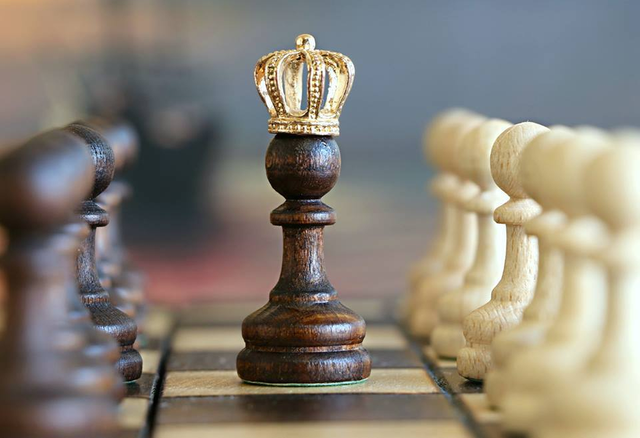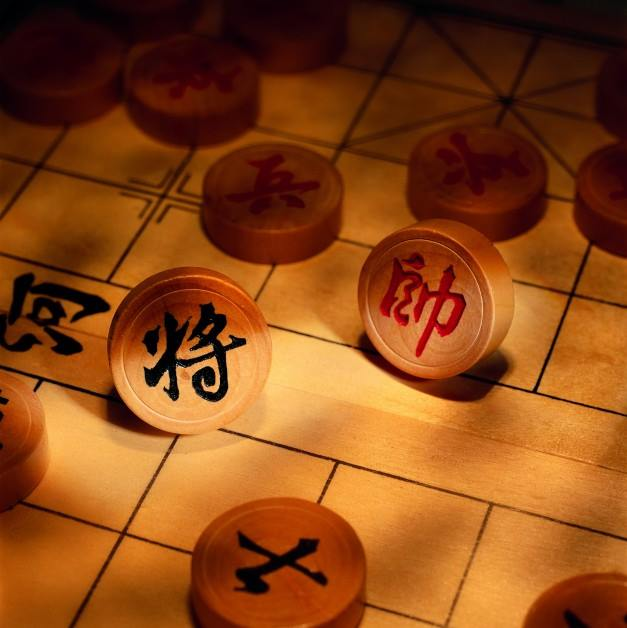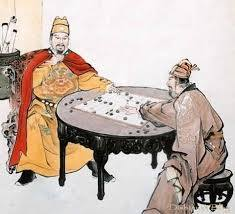Chess and Xiangqi - The principal of life
Since the formation of governments, the society is always a chess game. When politics start to interfere people’s lives, all the historical moves turn into a “big game”. There are more and more blood and tears, tragedy and comedy because of people’s conspiracies and actions in their political activities. From the Asia to Europe, our ancestors try to find a way to reduce damage and become “a king” in imagination by a simple method: combine politics with chess. In the East, it is xiangqi (Chinese chess) and in the west, it is Chess.

There is an interesting coincidence in the structure of the chess board in the East and the West. Xiangqi and Chess have 32 pieces although Xiangqi does not have queens and Chess does not have the cannon and advisor pieces.
The second similarity is that in both games, kings and generals are in the center. Pawns (or soliders in Xiangqi) are numerous but are the weakest pieces. Normal people – the pawns are never allowed to retreat. Their missions are compliance or obedience and moving forward.
Thirdly, before the opening, all the army of both sides will occupy half of the battlefield. If these soliders fall down, the remaining battlefield will be enough to bury them.

The space of Xiangqi is larger (90 intersections comparing to 64 squares of Chess). However, because the rule of Xiangqi states that a cannon need a platform (a piece stands between the cannon and an opponent) to attack, in general, the space of both games are equal. Furthermore, in Xiangqi, the advisors have only 3 moves, the elephants have 5 moves. That makes the maneuver of pieces become harder.
Talking about the art of warfare, the number of “soliders” and “weapons” in this kind of space will definitely make the battle more difficult, just like any other war in the world!
However, there are some differences between the East and the West.
- 1. In Chess, players can easily move the kings, put them aside or force them to move to the right places. However, in Xiangqi, kings are unclear, vague, abstract and do not belong to the game but to the god’s destiny. The picture of absolute monarchy is clear on the Xiangqi board.
In Xiangqi, the strongest piece are the chariot (rook in Chess similarly). This is the correct definition of righteousness because the chariot is always fast and straight-forward. We should know that the chariot contains a lot of soliders. The chariot is another formation of the solider. Many soliders will form a chariot. Nevertheless, in Chess, queens are the busiest and strongest pieces. Queens are the representation of kings. The king and the queen are one (the power of a family or a dynasty). In other words, in Chess, the kings must be adept.

- 2. In rationalism, people from the West bring to the Xiangqi board the sadness of closeness, the trail of sufferning and acceptance. There is an unarguable distribution in Xiangqi according to strategy and power. The horses (knights in Chess equivalently) cannot move if they meet obstacles. The advisors are only allowed to stay in the palaces to protect their generals.
When deploying, there are 3 levels of structure. The soldiers must be far from their general and are not allowed to come close. Even when the horses come to the palaces, the generals will be in destitution. People from the East understand the power of diagonals in a rectangle – the shortest segment in a rectangle but they restrain this capability in any way they can. Therefore, comparing to Chess, 3 pieces including adivsor, elephant (bishop in Chess equivalently) and knight can move in diagonals but they are always passive.

- 3. If the structure and speciality of Eastern chess boards are strategy and power, Western chess boards show only power.
When deploying, the pawns are close to their king. People from the West bring the transformation and the sparkle of intelligence and flexibility. Soliders in Xiangqi have 6 moves – the shortest path to reach the victory but pawns in Chess are still ...pawns.
“The son of a king will become a king again, the son of a monk will stay in the pagoda for the rest of his life”.
In Chess, if a pawn reach the final moment of the battle and help the king win the war, he will be promoted.
Napoléon Bonarparte said:
“A solider who never wants to be a king should not be a solider”.
The Chess board show a great strength of a person by the role of the queens. Queens can control 8 directions on board. This is the true ability of any politic talent.
- 4. Before the opening, in Xiangqi, there are a borderline between 2 countries. The goal of Xiangqi is annexion. In Chess, there is no borderline. The goal of Chess is unification. The rational meaning of this problem can be understood in a higher vision. Xiangqi is “conquering the world” - an intrigue and a desire that will never stop by any general. In contrast, Chess is only a courteous and equal battle. Both sides have equivalent force and compete on intelligence.
(to be continued)
You got a 50.00% upvote from @voteme courtesy of @pexea12! For next round, send minimum 0.01 SBD to bid for upvote.
Do you know, you can also earn daily passive income simply by delegating your Steem Power to voteme by clicking following links: 10SP, 25SP, 50SP, 100SP, 250SP, 500SP, 1000SP, 5000SP.
@originalworks